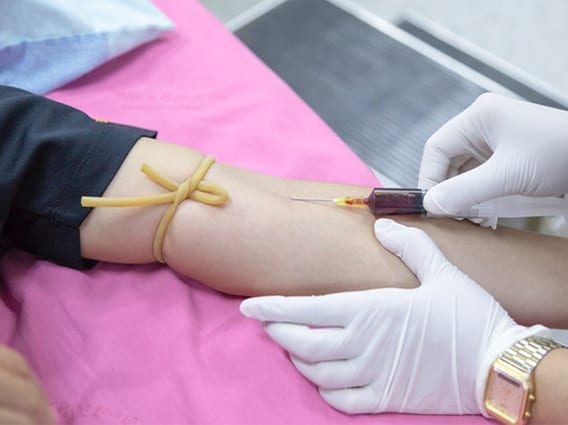New Blood Test Can Detect Alzheimer’s with 94 Percent Accuracy
One of the hardest things about researching, diagnosing, and treating Alzheimer’s disease is that by the time it is detected, it may already be too late. According to the Alzheimer’s Association, 5.8 million Americans are living with this disease and is the sixth leading cause of death in the United States.
To combat this, researchers from the Washington University School of Medicine in St. Louis have developed a blood test they say can diagnose up to 94% of Alzheimer’s cases 20 years before the disease fully takes hold, IFLScience.com reports.
The test, recently described in the journal Neurology, is based on the levels of amyloid-beta in a person’s blood. This predicts how much protein has collected in the brain. Once this has been determined the results are compared to their age and whether or not the genetic variant APOE4 is present.
Using blood samples and PET scans, researchers were able to match 88% of the cases. Once they included certain risk factors, including age and the presence or lack of APOE4, the accuracy jumped to 94%.
While detecting Alzheimer’s before the symptoms set in may allow sufferers to plan for forms of treatment that relieve the symptoms, there still isn’t any form of treatment available to stop the progression, or undo damage that has already been done. This team of researchers is positive, however, that being able to identify participants for clinical trials related to Alzheimer’s research quickly and cheaply will lead to additional research toward finding a cure.
“Right now we screen people for clinical trials with brain scans, which is time-consuming and expensive, and enrolling participants takes years,” senior author Randall J. Bateman said. “But with a blood test, we could potentially screen thousands of people a month. That means we can more efficiently enroll participants in clinical trials, which will help us find treatments faster, and could have an enormous impact on the cost of the disease as well as the human suffering that goes with it.”
Read more about the study here.














